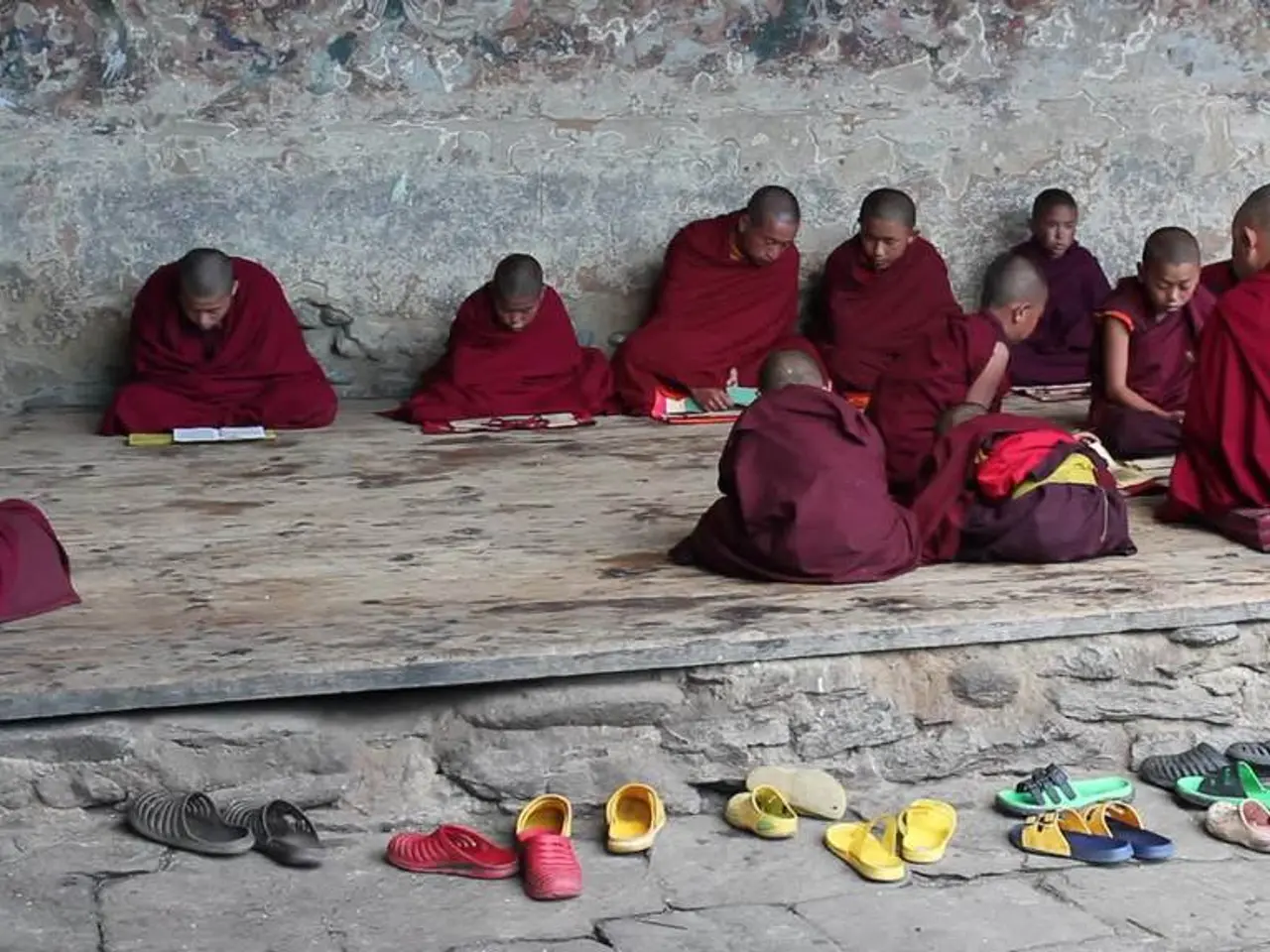UP Congress Accusations of Fraud Denied by Ramkamal Das amid Voter ID Dispute
The Ramkamal Das voter ID controversy, which unfolded during the 2023 Varanasi Municipal Corporation elections, has shed light on the challenges that arise when religious customs meet the rigid frameworks of electoral law.
At the heart of the issue is the Guru-Shishya tradition, a deep spiritual bond between a guru (teacher) and shishya (disciple) in India, particularly relevant in monasteries and ashrams. It is common for disciples to use their guru's name instead of their biological father's in official documents, including voter IDs, a practice that is both culturally accepted and legally recognized.
In 2016, the Government of India officially recognized this practice, allowing sadhus and sanyasis to use their guru's name in place of their biological father's in official documents. This recognition aligns with the country's legal framework, which respects diverse cultural and religious practices.
However, the controversy arose when some political parties, including the Uttar Pradesh Congress, claimed that the voter list showed evidence of voter fraud, suggesting that dozens of people were illegitimately registered as "sons" of Ramkamal Das. The temple officials, however, clarified that the naming convention was due to the Guru-Shishya tradition, which is legally acknowledged and practiced by disciples in monasteries.
The Uttar Pradesh Chief Electoral Officer also addressed the issue, confirming that the practice is both legal and culturally relevant. The Ram Janaki Math, where the controversy took place, is a religious establishment with no ordinary residential occupancy, and the voter list showed over 50 names with "Ramkamal Das" as the father's name, but these names belong to disciples and sadhus living within the temple premises.
The incident highlights a gap in public understanding of religious customs within electoral processes. Moving forward, greater collaboration between religious institutions and electoral authorities could ensure that legitimate traditions are respected while maintaining the integrity of voter records.
The Sant Samiti is considering filing legal notices against individuals and parties spreading allegations of fraud, while the UP Congress may use the incident to push for stricter voter roll audits. The Election Commission could issue explanatory notes or public statements when such issues arise, clarifying the legitimacy of practices that may appear unusual but are legally sanctioned.
By fostering greater cultural literacy within political discourse, future controversies like the Ramkamal Das voter ID controversy could potentially be prevented. The importance of understanding and respecting diverse cultural practices, particularly within the context of electoral law, is paramount in maintaining a harmonious and inclusive society.
Read also:
- Discussion between Putin and Trump in Alaska could potentially overshadow Ukraine's concerns
- Court petitions to reverse established decision on same-sex marriage legalization
- Independence supporters in New Caledonia refuse agreement offering authority without a vote on sovereignty
- Proposed Standardization of Food Labeling Laws Among Member States by the Commission








